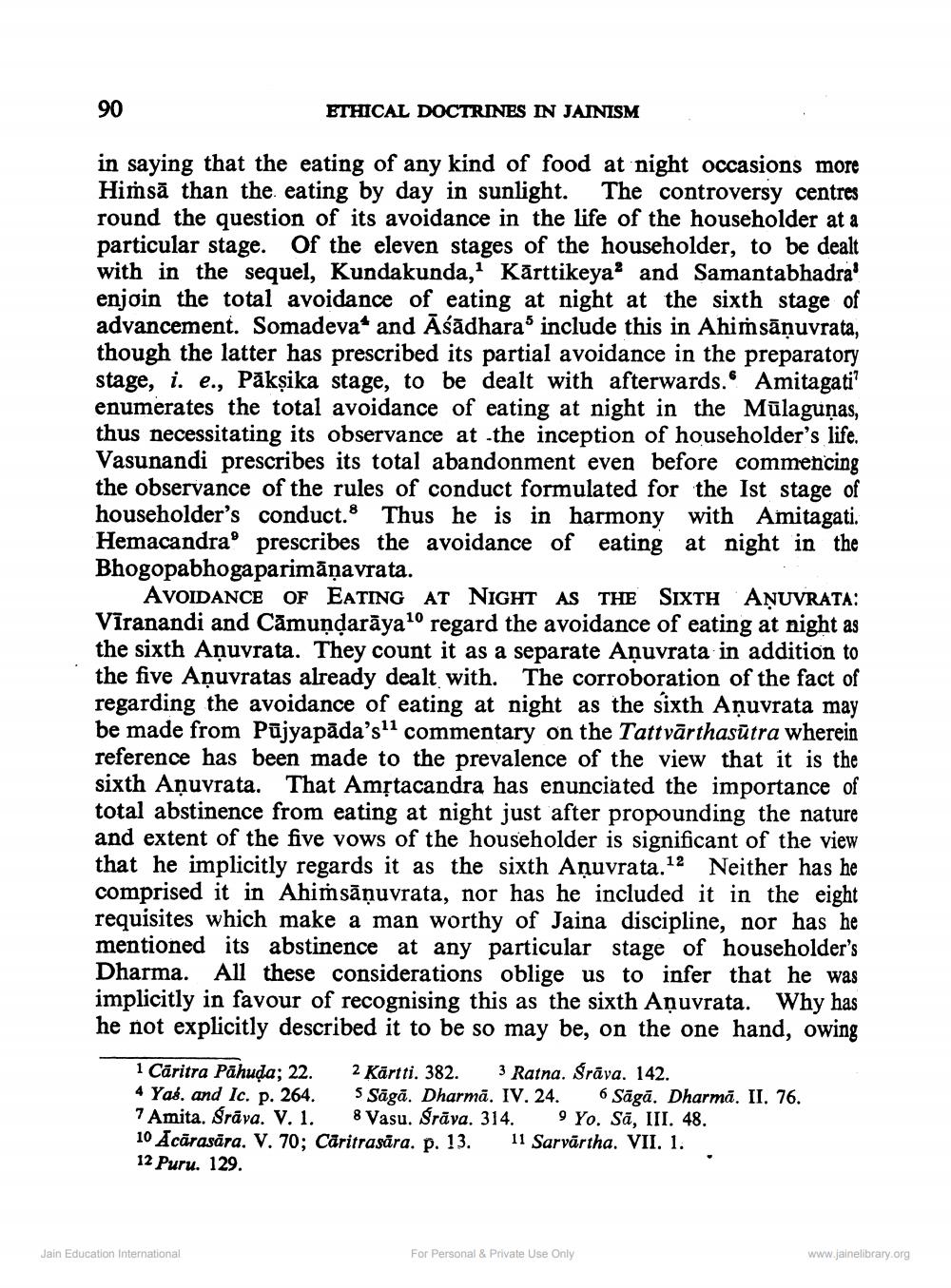________________
90
in saying that the eating of any kind of food at night occasions more Himsa than the eating by day in sunlight. The controversy centres round the question of its avoidance in the life of the householder at a particular stage. Of the eleven stages of the householder, to be dealt with in the sequel, Kundakunda,1 Kārttikeya and Samantabhadra' enjoin the total avoidance of eating at night at the sixth stage of advancement. Somadeva and Asadhara" include this in Ahimsāņuvrata, though the latter has prescribed its partial avoidance in the preparatory stage, i. e., Pākṣika stage, to be dealt with afterwards. Amitagati enumerates the total avoidance of eating at night in the Mulagunas, thus necessitating its observance at the inception of householder's life. Vasunandi prescribes its total abandonment even before commencing the observance of the rules of conduct formulated for the Ist stage of householder's conduct. Thus he is in harmony with Amitagati. Hemacandra prescribes the avoidance of eating at night in the Bhogopabhogaparimāṇavrata.
ETHICAL DOCTRINES IN JAINISM
AVOIDANCE OF EATING AT NIGHT AS THE SIXTH AṆUVRATA: Vīranandi and Camuṇḍaraya1o regard the avoidance of eating at night as the sixth Anuvrata. They count it as a separate Aṇuvrata in addition to the five Aṇuvratas already dealt with. The corroboration of the fact of regarding the avoidance of eating at night as the sixth Anuvrata may be made from Pujyapada's11 commentary on the Tattvārthasutra wherein reference has been made to the prevalence of the view that it is the sixth Aṇuvrata. That Amṛtacandra has enunciated the importance of total abstinence from eating at night just after propounding the nature and extent of the five vows of the householder is significant of the view that he implicitly regards it as the sixth Anuvrata.12 Neither has he comprised it in Ahimsaṇuvrata, nor has he included it in the eight requisites which make a man worthy of Jaina discipline, nor has he mentioned its abstinence at any particular stage of householder's Dharma. All these considerations oblige us to infer that he was implicitly in favour of recognising this as the sixth Aṇuvrata. Why has he not explicitly described it to be so may be, on the one hand, owing
1 Caritra Pahuḍa; 22. 4 Yas. and Ic. p. 264.
7 Amita. Srava. V. 1.
Jain Education International
2 Kärtti. 382. 3 Ratna. Srava. 142.
5 Sāgā. Dharmā. IV. 24. 6 Sāgā. Dharma. II. 76.
8 Vasu. Śrāva. 314.
10 Acarasära. V. 70; Caritrasära. p. 13.
12 Puru. 129.
9 Yo. Sã, III. 48. 11 Sarvärtha. VII. 1.
For Personal & Private Use Only
www.jainelibrary.org




